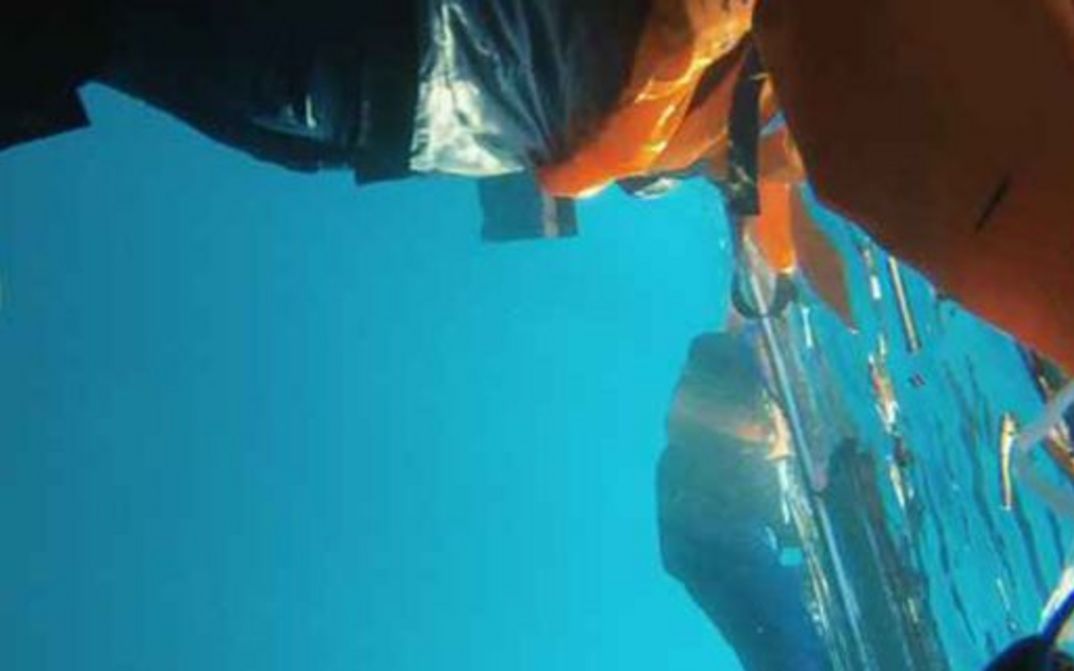Purple Sea & Images from the Corner

Thu 23.11.
17:00
Cinema
Arsenal 1
Director
Amel Alzakout, Khaled Abdulwahed
Germany / 2020
67 min.
/ Original version with English subtitles
Original language
Arabic
Vulnerability and Resistance "I see everything,“ she says. It sounds like a curse. Sunshine, clear blue sky. The sea calm, framed by a piece of railing. Diffused voices. A peaceful moment were it not for the sea standing vertically like a waterfall. Images tear past, circling, headlong, jerky. People in the boat, in the water, screams, life jackets, whistles. Luminous orange in which the sun's rays are broken into geometric figures. No more horizon, no sky, no up and down, just depth and no footing. Time doesn't follow any direction either, it contracts into a brutal now. She films and speaks. To her husband, to herself, maybe to us. Floating legs in sweatpants, in jeans, pressed close together. A blouse with butterflies, the wings seem to be flapping in the water. Fuck you all! She speaks, rages and films against the tiredness, against the cold, against the lack of help. Against dying so that something stays. PURPLE SEA is a film shot by the protagonist-director-author of the film, Amel Alzakout with a camera tied to her person. This act of first-person shooting of the footage, of the mid-sea collapse of an overloaded refugee boat, make the narrative distinct from the media-driven images of the other – the fully illegal and the simply aspirant entities. This film argues against the prevalent idea of legality not through any direct testimony but by developing an entirely new kind of moving image culture. (Madhusree Dutta)
Director
Jasmila Žbanić
Bosnia and Herzegovina / 2003
39 min.
/ DCP
/ Original version with English subtitles
Vulnerability and Resistance: Jasmila Žbanić, born in Sarajevo in 1974, used the fate of her friend Bilja as an example of a generation of young people who spent their teenage days in besieged Sarajevo (1992 - 1996). In 1992, Bilja was severely wounded during a shelling. She lost her arm, and a French photographer took photographs of her while she bled in the street. He did not help her. The photograph won the World Press Photo Contest of 1993. (Clarissa Thieme)